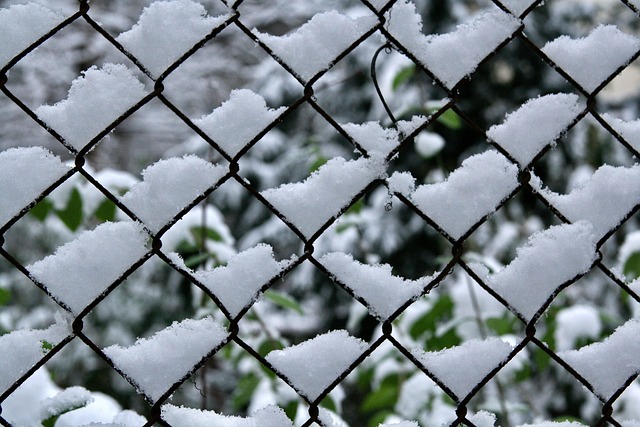In New Bedford, MA, the shift towards eco-friendly living has extended beyond homes and gardens, with fencing materials also undergoing a green transformation. This article explores the growing trend of sustainable fencing options, highlighting their numerous benefits for both homeowners and the environment. From natural alternatives to traditional fences to low-maintenance longevity, we delve into how New Bedford residents can contribute to a positive environmental change while enhancing their outdoor spaces.
- Eco-Friendly Fencing Trends in New Bedford
- Benefits of Sustainable Fencing Materials
- Natural Alternatives to Traditional Fences
- Longevity and Low Maintenance Options
- Local Availability & Installation Tips
- Environmental Impact: A Positive Change
Eco-Friendly Fencing Trends in New Bedford
In recent years, New Bedford has witnessed a growing trend towards eco-friendly fencing materials, driven by both environmental awareness and aesthetic preferences. Locals are increasingly opting for sustainable alternatives to traditional wooden or vinyl fences. Natural materials like bamboo, recycled plastic, and organic composites top the list due to their minimal environmental impact and long-lasting durability. For instance, bamboo fences offer a unique visual appeal while serving as a renewable resource that grows quickly, making it an eco-conscious choice.
This shift is also reflected in the use of living fences and hedges, which not only provide privacy but also contribute to local biodiversity. New Bedford residents are embracing these trends, recognizing the benefits of reduced carbon footprint, better water retention, and improved air quality that come with choosing environmentally friendly fencing options. As such, the city’s landscape is transforming into a vibrant tapestry of sustainable solutions.
Benefits of Sustainable Fencing Materials
New Bedford, MA residents now have access to a range of eco-friendly fencing materials that offer both aesthetic appeal and significant environmental benefits. These sustainable options provide an excellent alternative to traditional fences, helping to reduce the carbon footprint associated with manufacturing and installation.
By choosing recycled or naturally sourced materials like bamboo, wood from sustainably managed forests, or composite plastics made from post-consumer waste, homeowners can contribute to local biodiversity and water conservation. These fencing materials are often resistant to rot, decay, and pests, ensuring longer lifespans compared to conventional fences. Moreover, they require less maintenance, saving time and money in the long run.
Natural Alternatives to Traditional Fences
In New Bedford, MA, the search for eco-friendly fencing options has gained momentum as residents and landscaping professionals seek sustainable alternatives to traditional barriers. Beyond the typical wooden or vinyl fences, a range of natural materials offer both aesthetic appeal and environmental benefits. These include beautifully crafted bamboo fences, known for their strength and rapid growth rate, making them an excellent choice for those seeking a stylish and eco-conscious option.
Another natural alternative is the use of recycled materials such as old tires or plastic bottles. Transformed into flexible and durable fencing, these repurposed resources not only reduce landfill waste but also provide unique visual appeal. Additionally, living fences, featuring fast-growing plants like ivy or climbing vines, offer a vibrant green solution that seamlessly blends with the natural surroundings, creating a harmonious atmosphere in New Bedford’s outdoor spaces.
Longevity and Low Maintenance Options
In terms of longevity, eco-friendly fencing materials offer a distinct advantage over traditional options. These sustainable alternatives are designed to withstand the test of time and harsh weather conditions, ensuring they remain robust and structurally sound for years. Unlike wood or metal fences that may rot, rust, or require frequent repairs, products made from recycled materials or organic compounds are built to last, providing long-term savings for New Bedford residents.
Low maintenance is another significant benefit. Many eco-friendly fencing options do not demand extensive care or regular treatments with chemicals. They are often easy to clean and can be maintained with simple tools, reducing the need for toxic cleaning agents and preserving the natural state of the fence. This minimal upkeep allows homeowners to enjoy their fences without spending excessive time and resources on maintenance tasks.
Local Availability & Installation Tips
In New Bedford, MA, eco-friendly fencing materials are increasingly accessible, catering to both residential and commercial projects. Local hardware stores and landscape suppliers stock a variety of options, from recycled plastic and wooden posts to natural bamboo and composite materials. This availability makes it easier for homeowners and businesses to adopt sustainable practices without compromising on quality or aesthetics.
When installing eco-friendly fencing, consider hiring local contractors who specialize in these materials. They can offer expert advice on the best products for your specific needs and ensure proper placement and durability. Additionally, many manufacturers provide detailed installation guides, making it possible for DIY enthusiasts to tackle smaller projects themselves while still maintaining a green approach.
Environmental Impact: A Positive Change
The choice of fencing materials has significant environmental implications, but eco-friendly options offer a positive shift in New Bedford, MA. Traditional fencing often relies on non-sustainable resources like wood treated with chemicals or metal that contributes to waste and pollution. In contrast, eco-friendly materials such as recycled plastic, bamboo, and natural fiber ropes promote biodiversity, reduce carbon footprint, and minimize the ecological disturbance associated with extraction and production.
These alternative options not only lessen the environmental burden but also provide long-lasting durability and aesthetic appeal. By embracing these sustainable fencing materials, New Bedford residents can contribute to a greener landscape, support local ecosystems, and inspire others in their community to adopt eco-conscious practices.
